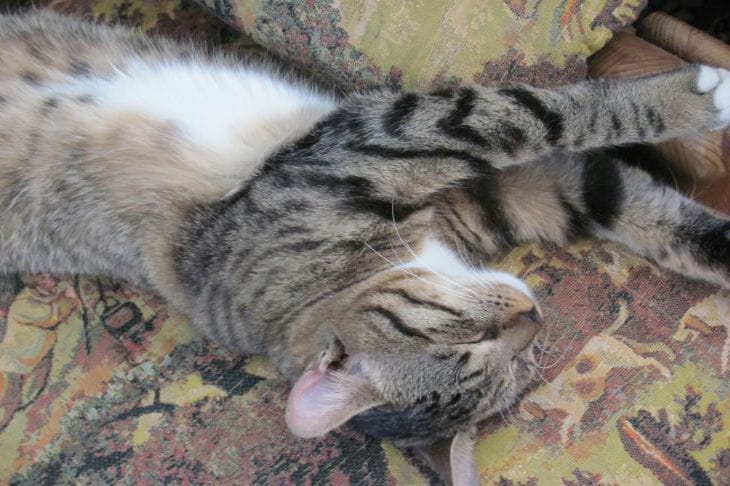If you are a cat owner, you have probably encountered a situation when your furry friend rushes at your legs and bites them.
Why does a cat do this and what does it mean? In this article, you will learn about the possible reasons for this behavior and we will give advice on how to wean a cat from this unpleasant habit.
Game or hunt
One of the most common reasons a cat will lunge is to play or hunt. Cats are predators by nature and have an innate instinct to chase and catch moving objects.
Feet under a blanket or in slippers may look like interesting prey to a cat that needs to be caught and killed.
This behavior is especially typical for kittens who have not yet learned to control their strength and aggression.

A cat may also play with your feet if she is bored or lacking attention.
Stress or illness
Sometimes a cat may lunge due to stress or illness.
Stress can be caused by a variety of factors, such as moving, having a new animal or person in the house, or outside noises or smells.
In such cases, the cat may feel scared or offended and express its dissatisfaction through aggression.
The disease can also affect the cat's behavior.
If she is in pain or feeling unwell, she may become irritable and bite her legs out of pain or fear.
Sexual instincts
Another possible reason why a cat throws itself at your feet is sexual instincts.
If a cat is not spayed or neutered, she may exhibit increased sexual activity during estrus or mating season.
During this period, the cat may be very excited and aggressive, and may also try to attract the attention of a potential partner.
Attacking legs can be a way to show interest or dominance.
How to stop a cat from attacking your legs
If you are suffering from your cat lunging at your legs and biting them, you can try the following methods to correct this behavior.
• Do not play with your cat with your hands or feet, so as not to provoke it to bite. Use only toys that can be kept away from the body.
• Do not react to your cat attacking your legs. If you yell, fight back, or move, your cat may perceive this as an invitation to play or resistance. Simply stop and hold still until your cat releases you. Then distract her with another toy or leave the room.
• Reward your cat's good behavior. If she plays with you calmly and doesn't bite you, praise her and give her treats or pet her. This will reinforce the positive association with peaceful play.
• Contact your veterinarian if you suspect your cat is lashing out due to illness or stress. Your veterinarian can check your cat's health and prescribe medication or sedatives if needed.
• Consider spaying or neutering your cat if she is a sexual predator. This will help reduce your cat's sexual activity and aggression, and prevent unwanted reproduction.
A cat attacking your legs is not a sign that it doesn’t love you or wants to hurt you. It’s simply a manifestation of its natural instincts or emotions. You can teach your cat more acceptable behavior if you follow our tips and show patience and love to your furry friend.








